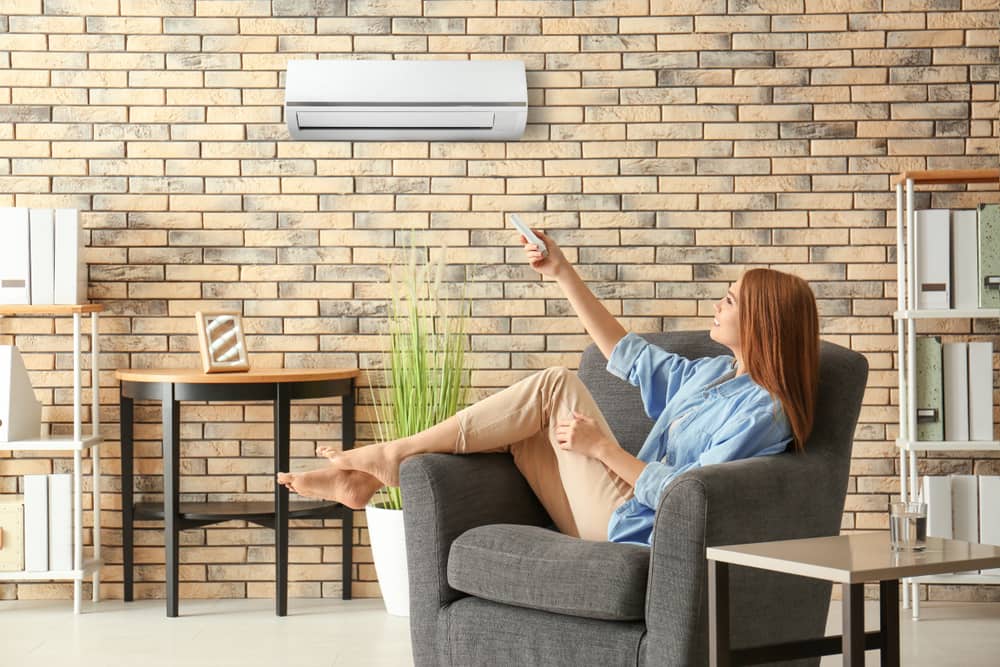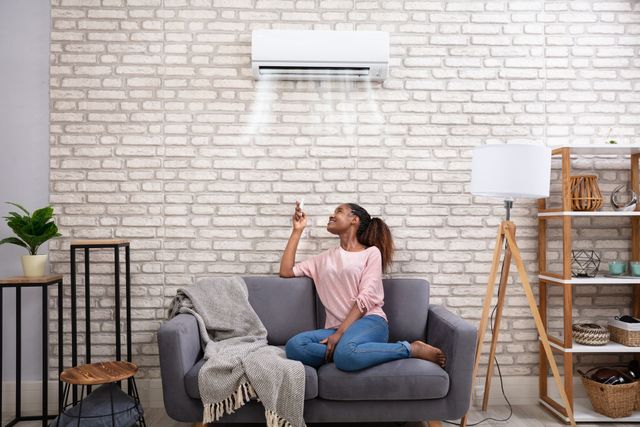Air conditioning units are designed to keep your home cool, but sometimes they can also produce a surprising byproduct – condensation. While some moisture is expected and normal, excessive condensation can be a sign of problems. Let’s try to understand what you need to know about AC condensation problems.
Air Conditioner Repair in Orlando FL: A Comprehensive Guide
Condensation is a natural occurrence in all air conditioners. As the warm, humid air passes over the cold evaporator coil of the AC unit, moisture is removed from the air. This moisture then drips off the coil into a drain pan and exits your home through a condensate drain line.
- Humidity Levels: High humidity conditions lead to more moisture in your indoor air, hence more condensation on your AC.
- AC Unit Size: If your AC unit is too big for your space, it will cycle on and off more frequently, not allowing for adequate dehumidification and increasing the chances of excess condensate.
Choosing the Right HVAC Service in Orlando, FL for Your AC Condensation Issues
- Clogged Drain Line: The most common cause of water leakage from an AC unit is a clogged condensate drain line.
- Solution: Regular maintenance checks can help prevent this problem. Use a wet/dry vacuum to clear any clogs from the line.
- Cracked Drain Pan: A cracked or damaged drain pan cannot hold water and may lead to leaks.
- Solution: Replace the damaged drain pan.
- Frozen Evaporator Coil: A frozen coil can cause water leaks as it defrosts.
- Solution: Ensure proper airflow by regularly changing filters and cleaning coils.
A Comprehensive Guide to HVAC in Orlando
If you want to learn about AC Repair in Orlando FL, click here.
Understanding condensation issues and their solutions are crucial to ensuring the efficient functioning of your AC.
- Preventive Measures: Regular AC maintenance, including cleaning of drain lines, replacing filters and checking for any damages can help prevent condensation issues.
- Problem Diagnosis: Understanding signs of issues such as water leaks, high humidity levels, or unusual noises from the unit can help in early diagnosis.
- Professional Help: If the problem persists despite troubleshooting attempts, it’s advisable to seek professional help.
Your One-Stop Guide for AC Repair in Orlando
As discussed earlier, factors contributing to condensation on your AC include high humidity conditions, an oversized unit or blockages in the drainage system. Problems may arise when this moisture doesn’t exit your home properly. Always ensure that your condensate drain line is clean and functioning.
Finding the Best Air Conditioning Service in Orlando FL
Improperly connected or leaking ductwork can cause warm air to enter the system and lead to moisture problems. – Solution: Regular inspection of ductwork connections and sealing any leaks can help resolve this issue.
Remember that while some basic maintenance jobs can be done by yourself, others require professional knowledge. Don’t hesitate to call a technician if you’re unsure about handling any problem with your HVAC system.
Air Conditioning Replacement in Orlando FL: Understanding the Need and Effective Solutions
Air conditioning units do more than just cool the air in your home or office; they also help to control and reduce humidity levels. The process of cooling the air and removing excess moisture often leads to condensation, which is a normal part of an AC unit’s operation. However, excessive condensation or leaks could indicate a problem with your system that needs immediate attention.
Why Does Condensation Form on Your AC?
Condensation forms when warm, moist air comes into contact with a cooler surface – in this case, your AC unit. When your AC is running, it pulls in warm air from your home. This warm air passes over the evaporator coils, which are cooled by refrigerant. As the warm air cools down, it can’t hold as much moisture, leading to condensation.
- High humidity levels
- Dirty filters
- Blocked or dirty coils
- Low refrigerant levels
Identifying Excessive Condensation
Normal condensation will drip into a drain pan and be expelled from the unit through a drain line. However, if you notice pooling water or active leaks around your AC unit during operation, there might be an issue with either the amount of condensation being produced or how it’s being drained.
- Pooling water around the indoor unit
- Water damage on walls or ceilings near ductwork
- Unusually high indoor humidity levels
Effective Solutions for Excessive Condensation
Maintain Your Unit Regularly:Regular maintenance includes cleaning or replacing filters every 1-2 months and having your system professionally serviced at least once a year.
Check and Clean Drain Lines:If the drain line is clogged, it could lead to water backing up and overflowing from the drain pan.
Inspect Your Ductwork:If your ductwork is not properly sealed or insulated, it could cause cold air to interact with warm air in your home, leading to increased condensation.
Consider a Dehumidifier:If you live in an area with high humidity levels, a dehumidifier can help reduce the amount of moisture in the air and limit condensation on your AC.
Seek Professional Assistance
If you’ve tried these solutions but are still dealing with excessive condensation issues on your AC, it’s time to call in the professionals. HVAC technicians can diagnose and repair complex issues like refrigerant leaks or coil blockages that could be causing increased condensation.
Remember, while a small amount of condensation is normal for AC units, excessive amounts can indicate serious problems. It’s important not to ignore these signs and seek professional help when necessary.
A Comprehensive Guide to Air Conditioning Installation in Orlando FL
Air conditioners, while being essential to our comfort, can sometimes present issues that need immediate attention. One such common issue is condensation. In this guide, we will delve into the specifics of condensation problems in your air conditioning unit and provide some solutions to handle them effectively.
Condensation is a natural result of the air conditioning process. As warm air passes over the cold evaporator coil, moisture from the air can condense on this cold surface leading to water droplets. Under normal conditions, these droplets should drain out of your AC unit without causing any issues. However, if you notice excessive or persistent water leakage or pooling from your AC unit, it might indicate a condensation problem.
Causes of Condensation Problems:
Understanding the root cause is crucial in rectifying any issue.
- Clogged Drain Line:Over time, dirt, dust and other debris can clog the drain line leading to water backlogging and eventually leaking.
- Rusty Drain Pan:The drain pan catching the condensed water might be rusty or damaged causing leaks.
Solutions for Condensation Problems:
- Regular Maintenance:Regular cleaning and maintenance of your AC unit including a thorough clean-up of filters and drain lines can prevent many condensation issues.
- Replacing Damaged Parts:If rust or damage is noticed on the drain pan or any other component responsible for handling condensation, replacement should be considered.
- Check Refrigerant Levels:Regular checks for appropriate refrigerant levels are crucial. If low levels are found they should be replenished by a certified professional.
Prevention is Better Than Cure:
- Professional Installation:Ensure that your AC unit is installed by a certified professional. This ensures that all components including the drain line and pan are positioned correctly thus reducing chances of leakage.
- Timely Repairs:If you notice any signs of potential condensation problems such as water pooling near your AC unit, noise from the drain pipe etc. , get them checked and repaired without delay.
- Periodic Check-ups:Regular check-ups by professionals can help in identifying potential issues before they turn serious.
Addressing Your Air Conditioning Repair Needs in Orlando FL
Condensation occurs when your AC unit cools the warm air in your room or home. This change in temperature often results in the formation of water droplets, known as condensation.
Understanding Orlando Air Conditioning Systems
In air conditioners, condensation is actually an indication of your unit working correctly. When warm air passes over the cooling coil and reduces its temperature, it can no longer hold as much humidity. This excess humidity then condenses on the coil creating water droplets.
Under normal circumstances, this condensed water drains out of your unit through a pipe or hose and doesn’t cause any issues. However, problems may arise if there are any disruptions to this draining process.
Common Reasons for Excessive Condensation
- Clogged Drain Line:Dirt, dust, and debris can build up over time and obstruct your drain line causing water to back up.
- Damaged or Broken Condensate Pump:If you have a central AC system located in the basement, it likely has a condensate pump to help remove water. If this pump breaks down or malfunctions, it won’t be able to properly pump out the water causing an overflow.
Effective Solutions for Condensation Problems
- Regularly Clean and Maintain Your AC:Regular maintenance including cleaning or replacing air filters and cleaning your drain line can prevent many condensation issues.
- Check and Refill Your Refrigerant Levels:If your AC is low on refrigerant, have a professional refill it. Never attempt to do this yourself as refrigerant can be harmful if not handled correctly.
- Repair or Replace Damaged Equipment:If your condensate pump or any other component of your AC is broken or damaged, have a professional repair or replace it.
It’s important to note that while minor maintenance tasks can be done yourself, larger repairs should always be left to a professional.
Remember, while condensation is a normal part of your AC’s process, any disruptions or issues should be addressed promptly to ensure the longevity and efficiency of your system.
Troubleshooting Dilemma: Why is There Condensation on Your AC?
Air conditioning condensation is a common and expected occurrence. It’s how your AC unit removes moisture from the air inside your home. However, excessive condensation can indicate a problem with your air conditioning system. In this segment, we will explore the reasons behind excessive condensation in your AC and propose effective solutions to handle such issues.
Condensation is formed when warm, moist air comes into contact with a cold surface. Since your AC unit’s primary task is to cool down the warm air inside your home, it naturally generates some amount of condensation. This moisture usually gets drained out of the system through the condensate drain line.
Causes of Excessive Condensation
- Blocked Drain Lines:If the drain line gets blocked due to dirt or algae accumulation, it prevents water from draining out and leads to overflow.
- Low Refrigerant Levels:Lower refrigerant levels can cause pressure drop in the AC system, reducing its efficiency and leading to freezing and subsequent thawing that manifests as excess water leak.
- Faulty Condensate Pump:A malfunctioning pump won’t be able to effectively remove the water resulting in pooling around your AC unit.
Effective Solutions
- Regular Maintenance:Regularly replacing or cleaning air filters and yearly professional maintenance can prevent many potential problems before they occur.
- Clearing Drain Lines:If you notice blockages or slow drainage, use a wet-dry vacuum to eliminate the blockage or consider calling a professional for thorough cleaning.
- Refrigerant Refill:If your system’s refrigerant level is low, you’ll need a professional to refill it. Remember that this could also be an indication of a leak somewhere in the system that needs immediate attention.
- Repair/Replace Condensate Pump:If your pump is faulty, call an HVAC technician to repair or replace it accordingly.
Remember, preventive maintenance can help save on repair costs in the long term and increase the lifespan of your AC unit.
- Understanding the Need for AC Repair in Orlando FL
- Understanding the Critical Role of AC Repair in Orlando FL
- Understanding the Importance of AC Repair in Orlando for Optimal HVAC Performance
- Exploring the Benefits of Trustworthy AC Repair in Orlando FL
- Air Conditioner Repair in Orlando FL: Solutions for Insufficient Airflow


